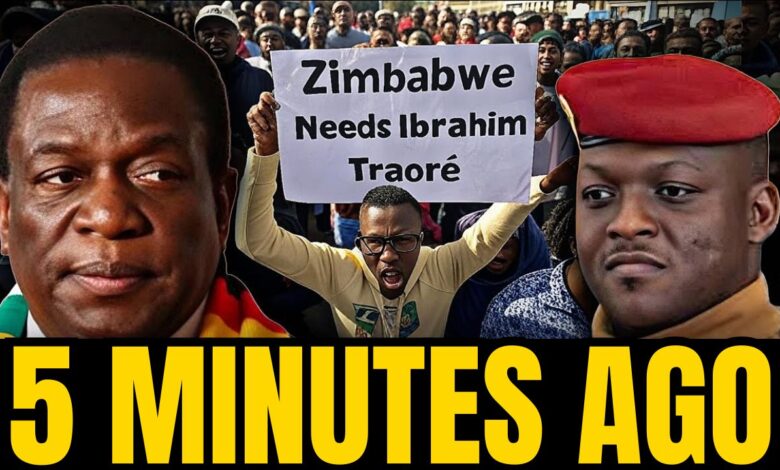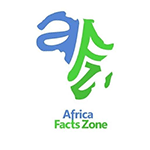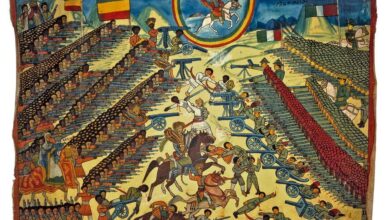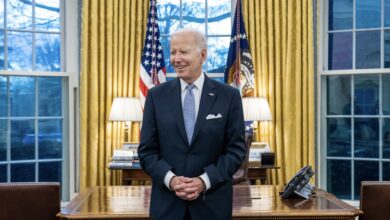Zimbabwe President Fires Army Chief Amid Coup Rumors – Youths Demand Ibrahim Traoré’s Leadership

Harare, Zimbabwe – In a dramatic twist that has fueled widespread speculation and unrest, Zimbabwe’s President Emmerson Mnangagwa has dismissed the country’s Army Chief amid growing rumors of a military coup. The move has sparked outrage and concern across the southern African nation, especially among the youth, who are increasingly voicing support for Burkina Faso’s revolutionary leader, Captain Ibrahim Traoré.
The Sudden Dismissal of Zimbabwe’s Army Chief
On Tuesday, President Mnangagwa abruptly relieved General Philip Valerio Sibanda, the Commander of the Zimbabwe Defence Forces, of his duties. The decision, made without a public explanation, triggered a wave of speculation across social media and local news outlets about possible internal tensions within Zimbabwe’s military and ruling elite.
Political analysts suggest that the dismissal could be linked to internal power struggles within ZANU-PF, the ruling party, especially ahead of the 2028 elections. This development echoes past incidents in Zimbabwe’s tumultuous political landscape, notably the 2017 military-assisted transition that ousted Robert Mugabe after nearly four decades in power.
“It is rare for a sitting president to fire an army chief without providing a clear national security rationale,” said Dr. Alex Magaisa, a Zimbabwean legal scholar and political analyst. “This only fuels the speculation and mistrust brewing in the political space.”
Coup Rumors Spread Like Wildfire
Soon after the dismissal, reports of troop movements in and around Harare circulated on X (formerly Twitter) and WhatsApp groups, sparking fears of an impending military takeover. While government spokespeople have denied any coup attempt, many Zimbabweans remain skeptical.
Zimbabwe has long struggled with economic hardships, rampant inflation, and political repression — conditions that have historically provided fertile ground for unrest. For some, the events of this week seem like déjà vu.
Youths Call for Ibrahim Traoré’s Style of Leadership
Interestingly, this political turmoil has taken on a pan-African dimension. Youths in Zimbabwe and across southern Africa have taken to social media to express admiration for Captain Ibrahim Traoré, the transitional leader of Burkina Faso, who has become a symbol of anti-imperialist and youth-driven revolution across francophone Africa.
Hashtags like #WeNeedTraore and #AfricanRevolution have trended in Zimbabwean circles, calling for bold and transformative leadership like that seen in Burkina Faso.
“We are tired of old guards clinging to power and crushing the dreams of young people,” said a 26-year-old activist in Bulawayo. “Captain Traoré is showing the world that the youth can lead with vision and courage.”
Captain Ibrahim Traoré, who came to power through a military-led transition in 2022, has been praised by Pan-African youth movements for rejecting Western influence, expelling French troops, and promoting self-reliance and national pride. Read more on Ibrahim Traoré’s rise to power here.
Regional Implications and Rising Pan-African Sentiment
The situation in Zimbabwe is emblematic of a wider awakening across the continent. From Mali and Burkina Faso to Niger and now Zimbabwe, a wave of revolutionary sentiment is sweeping through African nations plagued by neocolonial dependency and political decay.
Experts suggest that this Pan-African consciousness is fueled by dissatisfaction with Western-backed leaders and a desire to reclaim sovereignty and dignity.
“There’s a growing belief among Africa’s youth that the continent needs a clean break from corrupt elites and outdated leadership structures,” notes Professor PLO Lumumba, a renowned Pan-African scholar and advocate for African unity.
What Lies Ahead for Zimbabwe?
As tensions mount, many Zimbabweans fear the possibility of a prolonged political crisis or even civil unrest. The firing of the Army Chief could signal an attempt by Mnangagwa to consolidate power, but it could also backfire if the military perceives it as a threat to its influence.
Meanwhile, opposition parties like the Citizens Coalition for Change (CCC) have called for calm and demanded transparency from the presidency. International bodies, including the African Union (AU) and Southern African Development Community (SADC), have yet to make formal statements.
Final Thoughts
The unfolding events in Zimbabwe highlight a deeper generational and ideological struggle — one between entrenched political dynasties and a rising wave of youth-led transformation. Whether or not the coup rumors materialize, one thing is certain: African youths are no longer content to be passive observers. They are demanding leadership that reflects their aspirations, with Captain Ibrahim Traoré serving as a bold new symbol of that vision.
Sources:





